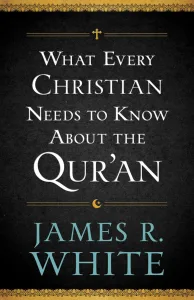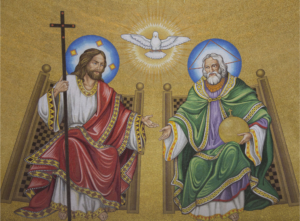The Ground of the Assertion
“The LORD your God will raise up for you a prophet like me from among you, from your brothers—it is to him you shall listen— … I will raise up for them a prophet like you from among their brothers. And I will put my words in his mouth, and he shall speak to them all that I command him. And whoever will not listen to my words that he shall speak in my name, I myself will require it of him. (Dt 18:15,19)
The context of the Passage
The Establishment of Israel
Now the LORD said to Abram, “Go from your country and your kindred and your father’s house to the land that I will show you. And I will make of you a great nation, and I will bless you and make your name great, so that you will be a blessing. I will bless those who bless you, and him who dishonors you I will curse, and in you all the families of the earth shall be blessed. (Ge 12:1–3)
Ishmael’s Prophesied Legacy
As for Ishmael, I have heard you; behold, I have blessed him and will make him fruitful and multiply him greatly. He shall father twelve princes, and I will make him into a great nation. But I will establish my covenant with Isaac, whom Sarah shall bear to you at this time next year.” (Ge 17:19–21) (Emphasis mine)
But Sarah saw the son of Hagar the Egyptian, whom she had borne to Abraham, laughing. So she said to Abraham, “Cast out this slave woman with her son, for the son of this slave woman shall not be heir with my son Isaac.” And the thing was very displeasing to Abraham on account of his son. But God said to Abraham, “Be not displeased because of the boy and because of your slave woman. Whatever Sarah says to you, do as she tells you, for through Isaac shall your offspring be named. And I will make a nation of the son of the slave woman also, because he is your offspring. (Ge 21:9–13)
And the LORD granted his prayer, and Rebekah his wife conceived. The children struggled together within her, and she said, “If it is thus, why is this happening to me?” So she went to inquire of the LORD. And the LORD said to her,
“Two nations are in your womb,and two peoples from within you shall be divided;the one shall be stronger than the other,the older shall serve the younger.” (Ge 25:21–23)
Once when Jacob was cooking stew, Esau came in from the field, and he was exhausted. And Esau said to Jacob, “Let me eat some of that red stew, for I am exhausted!” (Therefore his name was called Edom.) Jacob said, “Sell me your birthright now.” Esau said, “I am about to die; of what use is a birthright to me?” Jacob said, “Swear to me now.” So he swore to him and sold his birthright to Jacob. (Ge 25:29–33)
Then his father Isaac said to him, “Come near and kiss me, my son.” So he came near and kissed him. And Isaac smelled the smell of his garments and blessed him and said,“See, the smell of my son is as the smell of a field that the LORD has blessed!May God give you of the dew of heaven and of the fatness of the earth and plentyof grain and wine.Let peoples serve you, and nations bow down to you.Be lord over your brothers, and may your mother’s sons bow down to you.Cursed be everyone who curses you, and blessed be everyone who blesses you!”(Ge 27:26–29)
And not only so, but also when Rebekah had conceived children by one man, our forefather Isaac, though they were not yet born and had done nothing either good or bad—in order that God’s purpose of election might continue, not because of works but because of him who calls— 12 she was told, “The older will serve the younger.” 13 As it is written, “Jacob I loved, but Esau I hated.” (Ro 9:10–13)
Applying the Analogy of Faith
Moses said, ‘The Lord God will raise up for you a prophet like me from your brothers. You shall listen to him in whatever he tells you. And it shall be that every soul who does not listen to that prophet shall be destroyed from the people.’ And all the prophets who have spoken, from Samuel and those who came after him, also proclaimed these days. (Acts 3:22-24)
- By God’s decree, all Israeli leaders and prophets must come from one of the twelve tribes of Israel. Muhammad, as a descendant of Ishmael, is disqualified.
- The New Testament declares the passage to be about Jesus.
What used to be an exotic religion of people halfway around the world is now the belief system of people living across the street. Through fair, contextual use of the Qur’an as the primary source text, apologist James R. White presents Islamic beliefs about Christ, salvation, the Trinity, the afterlife, and other important topics. White shows how the sacred text of Islam differs from the teachings of the Bible in order to help Christians engage in open, honest discussions with Muslims.

Logos Bible Software
The Logos Bible Study app is a powerful Bible study and sermon prep platform. It allows you to study Scripture, commentaries, devotionals, Bible dictionaries, and more from your computer, tablet, or phone. If you want to know the Creator of the Universe intimately, you want this app.

Elevated Faith
Are you looking for apparel or swag? We picked Elevated Faith because of the diversity of their offerings. They offer some great ideas for gifts for others and treats for yourself.












